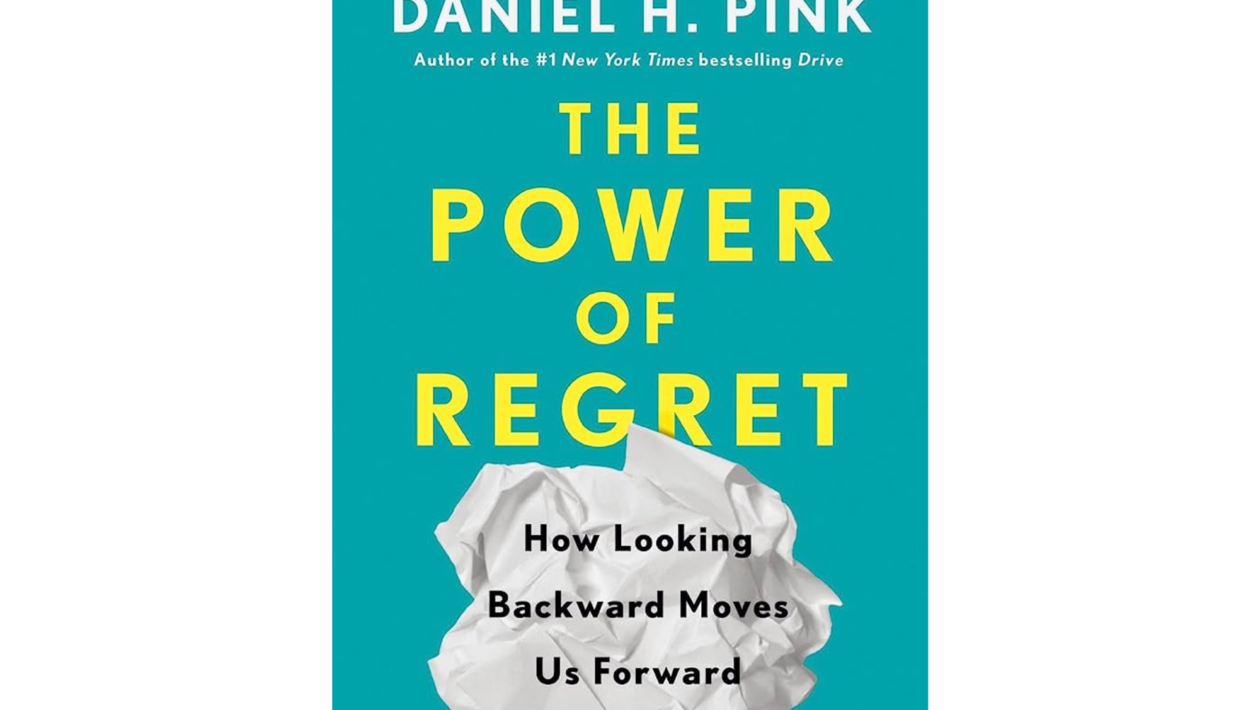By Daniel Pink
Riverhead Books (2022)
Hardcover, 256 pages
Reviewed by MOISES RUIZ
Most of us would rather share about our accomplishments than our regrets. Daniel Pink invites us to leverage more from our regrets. The author states that the purpose of the book is “to reclaim regret as an indispensable emotion—and to show you how to use its many strengths to make better decisions, perform better at work and school, and bring greater meaning to your life” (p. 16). Pink notes that within the heart of regret lies the human ability to view possible futures and the uncomfortable sensation of what could have been.
He starts with overview of the last 70 years of research concerning regret. He argues that regret shows a deep human capacity for moral thinking and strategic estimation, and, as such, regret makes us better people. Pink quotes Zeelenberg and Pieters, saying, “People’s cognitive machinery is pre-programmed for regret” (p. 41). Other findings in the research reveal that regret can improve decisions, boost performance, and deepen meaning.
The book then reviews findings from two robust surveys, The American Regret Project and The World Regret Survey. Pink establishes four categories of regret. Foundation regrets are a failure of responsibility that over a lifetime result in a lack of stability. Boldness regrets reflect the chances we did not take; this type of regret is the most common and indicates the human need for growth. Moral regrets relate to times when we violate or compromise our personal ethics. Connection regrets speak to fractured or unrealized relationships.
In the final section of the book, the author explores practical ways to work through regret. Strategies include making amends when possible or gaining perspective through distance. When restitution is unavailable, reframing regrets from “if only” to “at least” can ease the sting of regret. The act of disclosing one’s regrets can provide relief, as reflected by Pennebaker, who found that merely writing about a regret led to a plethora of benefits, including better grades and strengthened immune systems (p. 241). The author concludes the book with the Regret Optimization Framework, which includes imagining yourself in the future as you make decisions today; this will lessen the impact of that regret in the future.
Pink’s seamless integration of narrative, personal anecdotes, and robust research provides greater access to both academics and practitioners. Its use of the regret surveys produces a rich primary source from which the reader explores the deep structure of regret. The almost universal nature of boldness regrets provides a new lens for leaders in their decision making.
One drawback of the book is that there is very little exploration of the potentially negative impact of unearthing regret or the possible benefits of ignoring the emotion altogether.
Through an appeal toward self-acceptance, the author evokes the ideas of authentic leadership. Authentic leadership inspires growth through embracing our past with vulnerability and honesty (Northouse, 2021). The concept of reclaiming regret as an indispensable emotion is couched in the idea that regret is a feeling for the purpose of thinking. The process of intentional reflection outlined in the book adequately accomplishes the intended purpose of the book. With a focus on personal growth through confronting one’s past, the principles of this book can help a leader make better decisions while maintaining a healthy relationship with failure. For any leader who struggles with looking backward, this book will provide a pathway of necessary education for a brighter future through the teacher of regret.
Moises Ruiz is the pastor of the Red Deer, Alberta, Canada, Seventh-day Adventist Church.
Reference
Northouse, P. G. (2021). Leadership: Theory and practice (9th ed.). SAGE Publishing.

